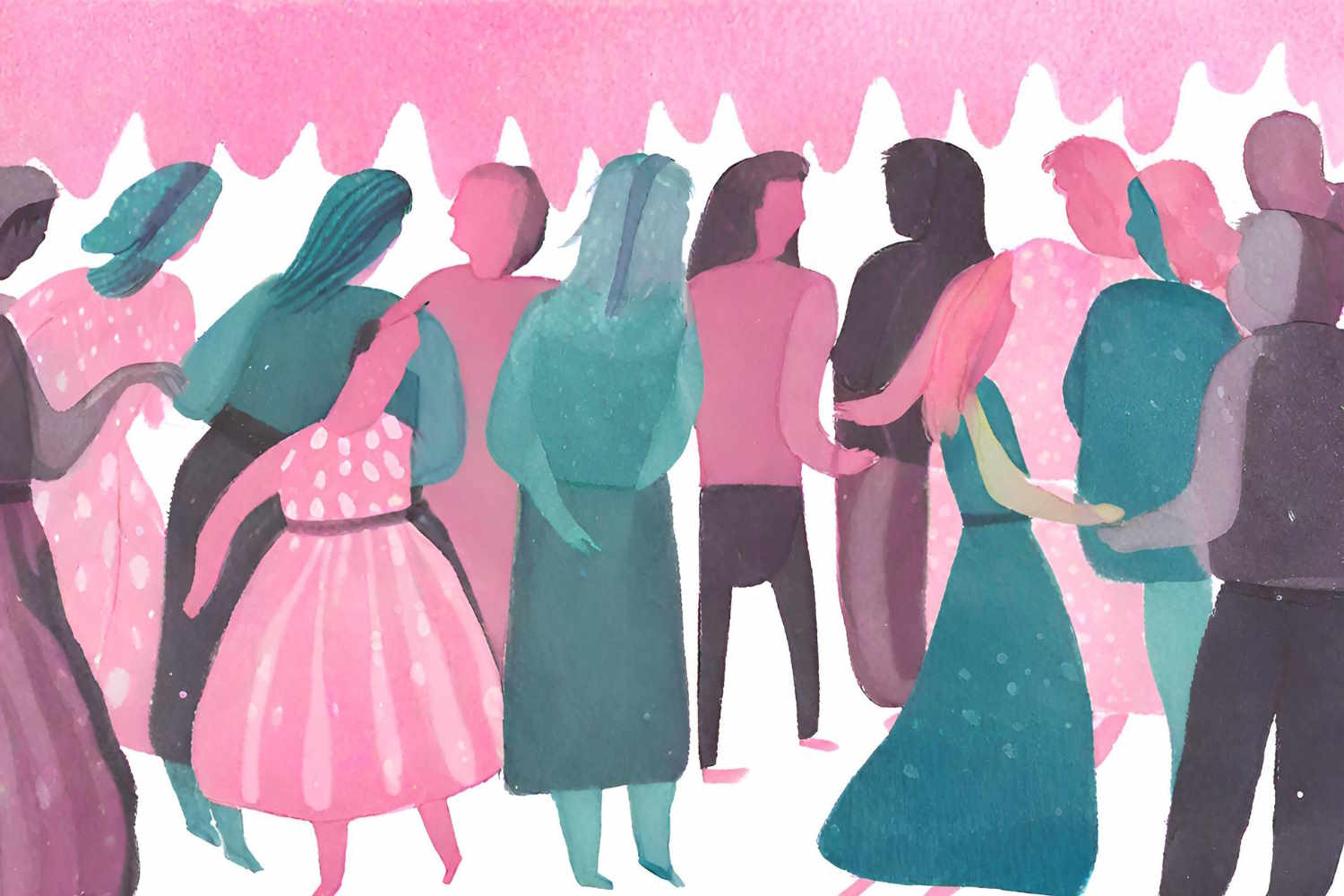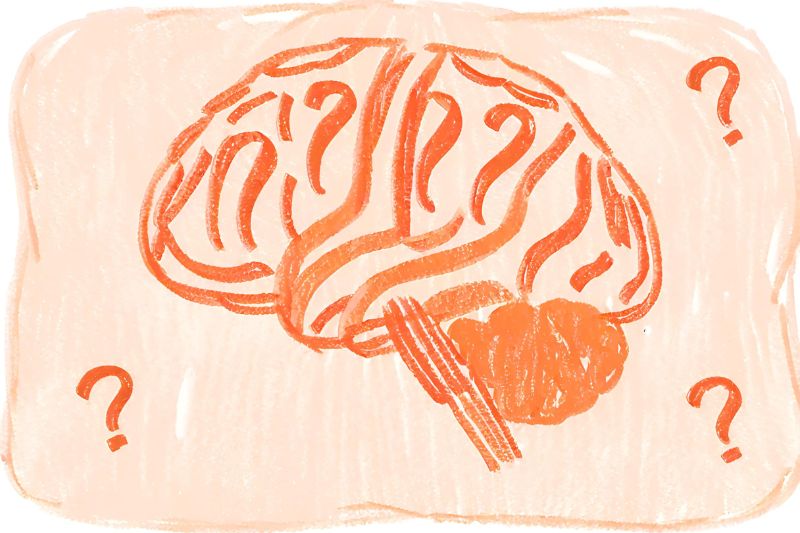If you were to picture an extrovert in your mind, you'd likely think of an outgoing, vivacious social butterfly. Meanwhile, think of someone with social anxiety, and you'd likely imagine someone shy and withdrawn, who avoids social situations as much as possible. The two feel like they can't possibly go together—but is this the truth, or can you be an extrovert and have social anxiety?
In this article, we'll take a look at the spectrum of extroversion and introversion, explore why people get social anxiety, and see why it is possible for someone to experience this condition despite being an extrovert. Read on to learn more!
Extroverts and introverts
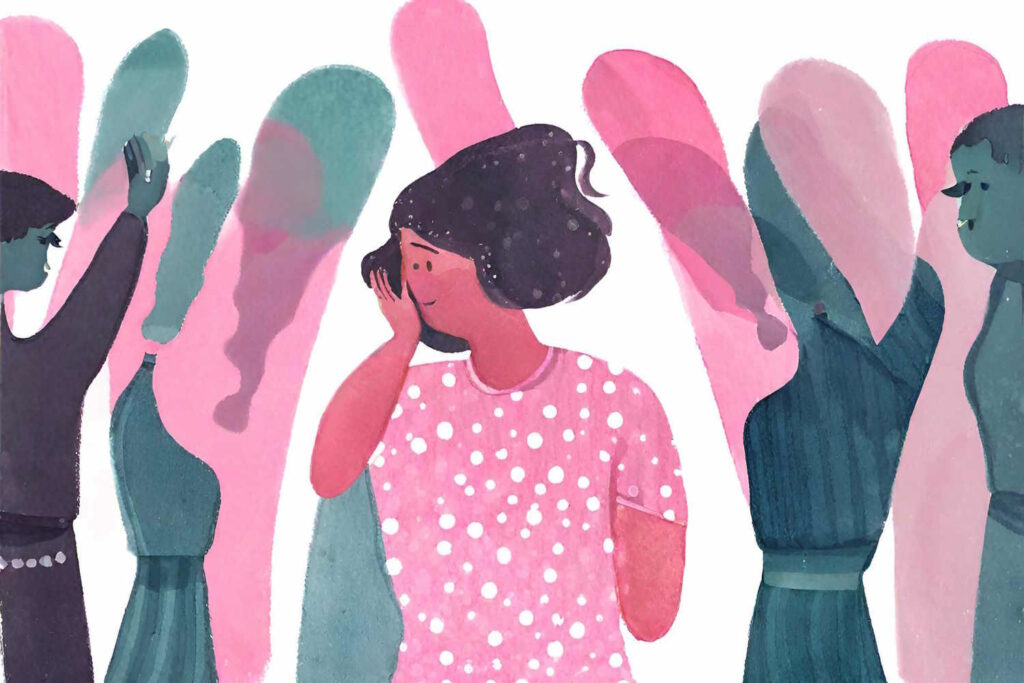
As humans, we're prone to attempting to sort things into neat categories. This remains true even in the complex world of personality traits. It's for this reason that many people class themselves (or those around them) as introverts and extroverts. Those in the former category are viewed as reserved and quiet, while the latter are the life of the party.
The reality, of course, is more nuanced. The psychologist who first introduced the terms ‘introversion’ and ‘extroversion’ into the lexicon, Carl Jung, argued that all people have elements of both personality types, with one being more dominant than the other. Recently, people have started to embrace the term ambivert to describe this blend of the two, while others describe the scale as a spectrum rather than a binary.
Meanwhile, it's worth noting that even though someone may see themselves as mostly an extrovert or an introvert, this does not mean that that side of them always predominates. Someone may, for example, be gregarious at a party with friends, but less at ease at a family gathering. Various factors can similarly impact one's level of introversion or extroversion, such as your mood or environment.
Understanding social anxiety
Before we can explore how someone can both be an extrovert and have social anxiety, we first need to understand what social anxiety is. Many people incorrectly assume that it is another term for shyness, but this is not the case.
Where extroversion and introversion are personality traits, social anxiety is an anxiety disorder. As such, they are not, as many people think, mutually exclusive. Symptoms of social anxiety include, but are not limited to:
- Worrying about social activities
- Fearing that you will be judged negatively, or embarrass yourself
- Feeling nervous about talking to strangers
- Anxiety about upcoming events or activities
In addition to these behavioural symptoms, social anxiety can affect you physically. This can manifest as a racing heartbeat, blushing, sweating, dizziness, and mind blankness. You may even experience a panic attack in certain situations.
For many people, a telltale sign of social anxiety is avoidant behaviour. As the name suggests, this involves avoiding certain social situations due to your worries or fears. These can range from attending a party to going to a supermarket. However, a person does not need to exhibit avoidant behaviour to have social anxiety.
Life as an extrovert with social anxiety
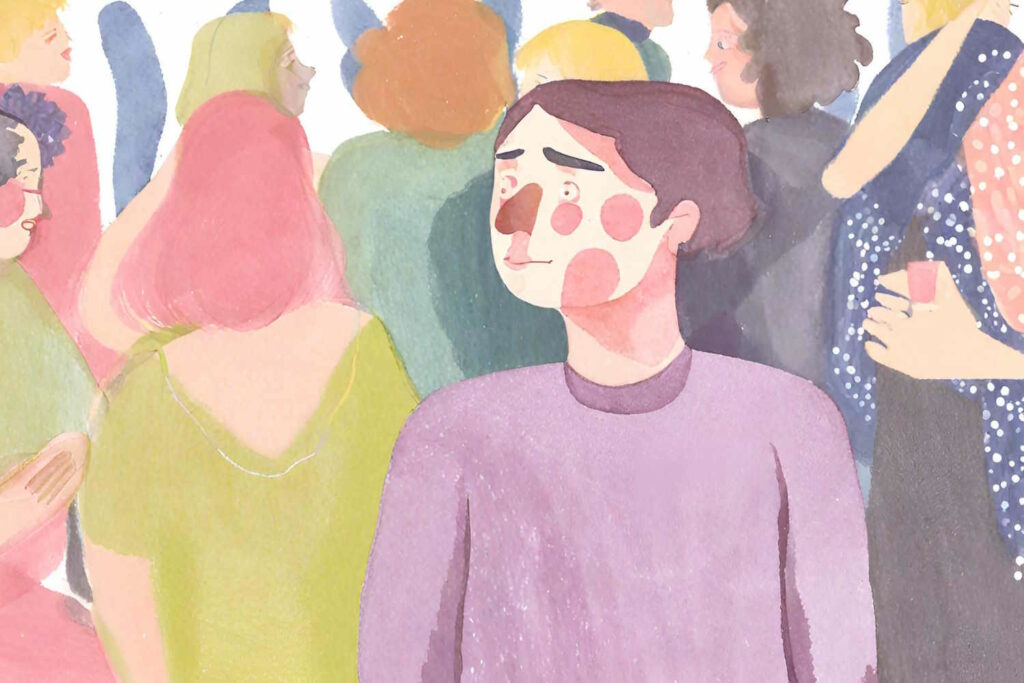
With a better understanding of social anxiety, we can start to understand how someone who is extroverted can experience this condition. Social anxiety does not mean that you do not want to socialise, but instead that you feel anxiety about socialising. This makes it much easier to comprehend how an extrovert can have social anxiety.
Similarly, it's worth noting that just because someone appears to be at ease in a social situation doesn't mean that they aren't dealing with anxiety. Dee Johnson, quoted by Habiba Katsha in The Huffington Post, noted that ‘extroverts present as confident, self-assured communicators’. She argues that this behaviour can sometimes be driven by anxiety, with an extrovert's outward demeanour being a ‘performance’.
Meanwhile, many people who thrive in situations typically associated with extroversion—such as public speaking or speaking to new people—can still experience these symptoms. This can be explained by realising that extroverts may feel energised by others whilst still experiencing social anxiety.
This group of people may feel judged by others and under pressure to ensure that everyone around them is having a good time. This can in turn drive them to strive for perfection and to overthink the interactions they have with others. This can lead to high levels of anxiety—worsened by their need to mask their true feelings. As a result, socially anxious extroverts can find it especially hard to reach out to others.
Getting help as an extrovert with social anxiety
If you're an extrovert with social anxiety, it can be tempting to continue putting on a brave face. However, this can end up exacerbating your symptoms, potentially leading to a worsening of your mental health in the long run. This is why it's so important to get the help you need.
Here are some of our top tips on how to manage social anxiety disorder as an extrovert:
Open up to friends and family
The first step is often the hardest when it comes to tackling a mental health condition. This is particularly true of extroverts with social anxiety, whose loved ones may be completely unaware that anything is wrong.
Confiding in those close to you that you're dealing with social anxiety is a crucial part of finding a way forward. Doing so can help others to recognise when you're struggling, provide support when you need it, and can help you to avoid situations where you're under constant pressure to ‘perform’.
Accept what you cannot control
Social anxiety can be rooted in a desire to always be in control of what's going on around you. As an extrovert, you might worry that those around you are enjoying themselves—potentially to the detriment of your own wellbeing.
Instead, accept that you aren't able to set the mood of everyone around you. Someone may just be having an off day, or be struggling with issues outside of your control. Being aware of this can help you to free yourself from the burden of anxiety and alleviate the pressure you put on yourself.
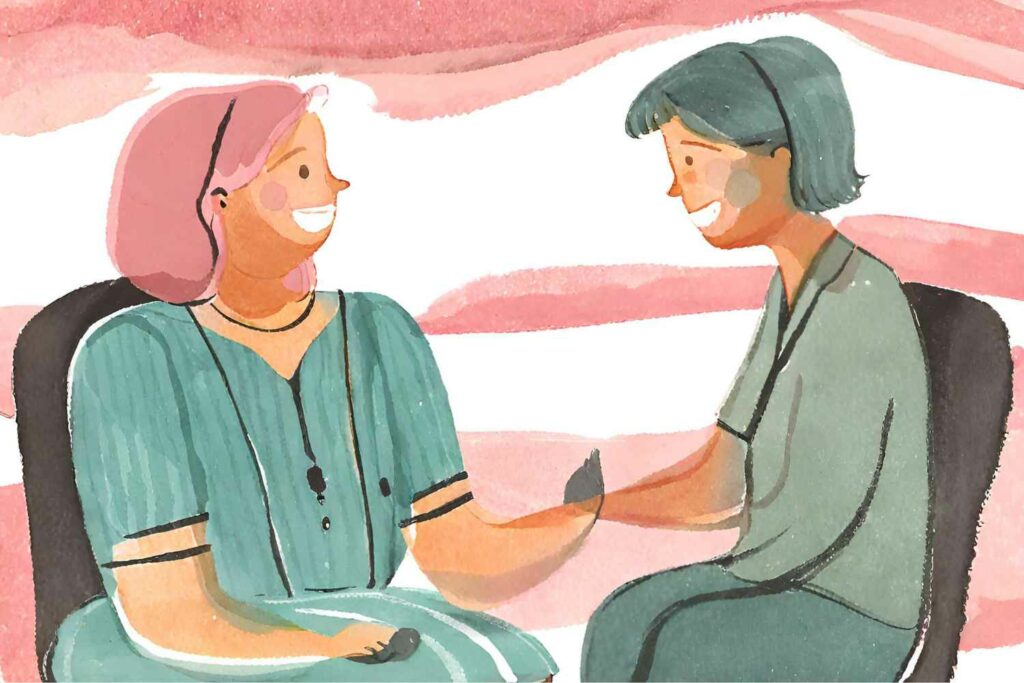
Challenge automatic thoughts
As an extrovert with social anxiety, it can be easy to let your thoughts race. This can lead to spiralling symptoms which quickly become difficult to control. However, one technique known as challenging automatic thoughts can prove useful in combatting this.
For example, you might start by worrying about embarrassing yourself in a social situation, then thinking about all of the possible negative consequences. Instead, stop yourself at that initial thought, and think about how you would react if you saw someone else in that same situation. You may quickly realise that things wouldn't be nearly as bad as you fear.
This technique comes from cognitive behavioural therapy: a type of talking therapy that focuses on the relationships between our thoughts, behaviour and actions. It holds that, by replacing our negative thoughts with more realistic ones, we can change our mindset.
Reach out to a professional
Social anxiety can seriously impact your mental health. However, you don't have to go through it alone. Speaking to a professional therapist can help you to gain new coping mechanisms and begin to put your life back on track.
If you're interested in learning more, then check out our social anxiety programme. This is a one-to-one online therapy package that consists of 6 sessions with a specially-trained professional. Each session will be tailored to your needs, and you'll be able to see the progress you're making via the use of regular assessments. Over time, you'll build self-esteem, learn how to cope with your triggers, and acquire the tools you need to manage your social anxiety.
Post Date:
Author: Andy Boardman
Explore More Articles
3 Mental Health Myths Your Therapist Is Sick of Hearing
It's great that more people are talking about mental health, but not everything you hear is necessarily true. Don't fall for these 3 mental health myths!
Feeling Worried? Challenge Anxious Thoughts with These Simple Questions
Stuck in a spiral of anxious thoughts? Use these 3 simple questions to challenge negative thinking and adopt a healthier mindset.
ManageMinds Explains... Narcissists
Even wondered if you or someone you know may be a narcissist? In this guide we cover what narcissistic personality disorder is, as well as the signs you need to watch out for.
